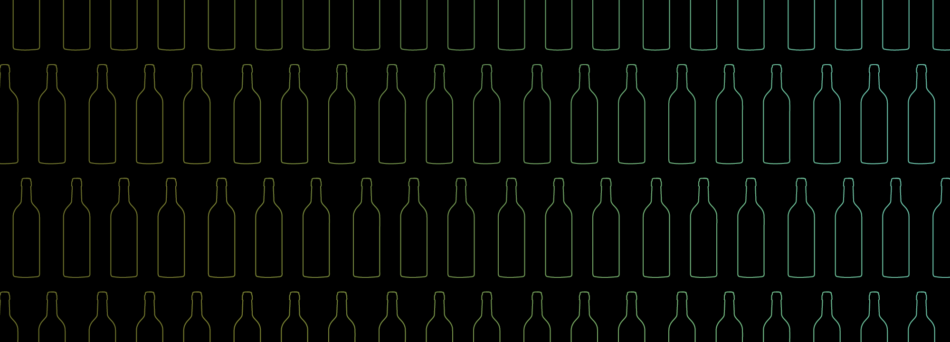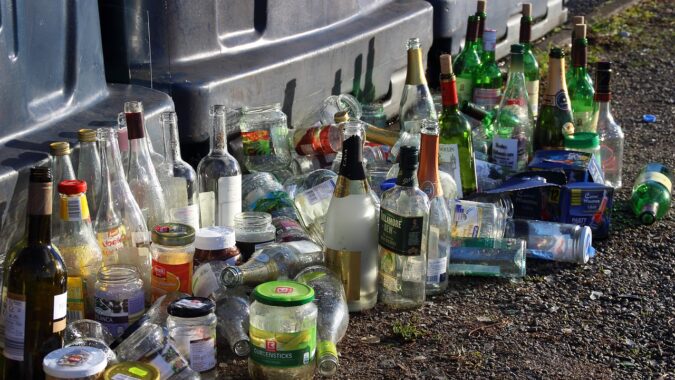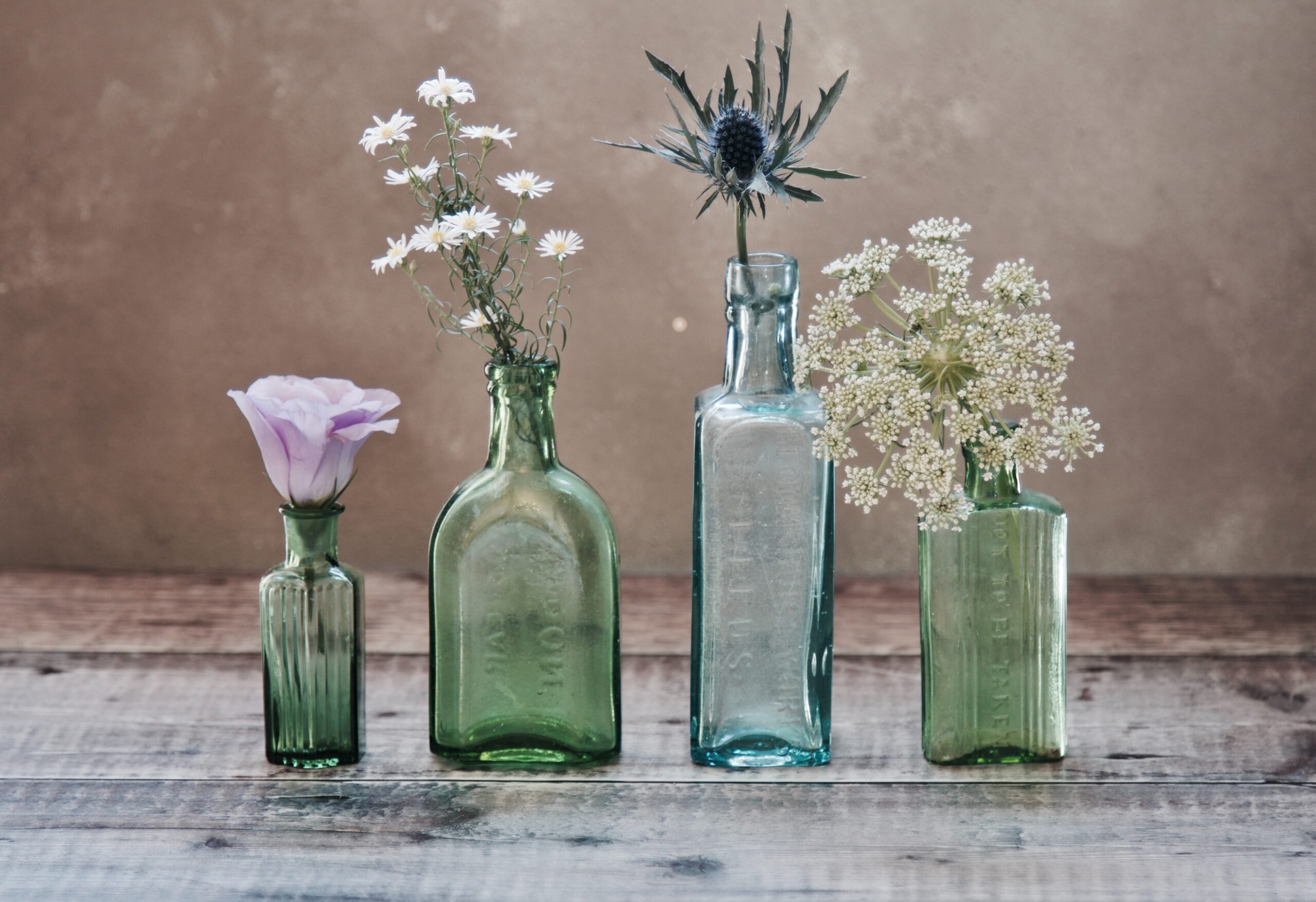
How to Reduce Glass Waste
Glass is infinitely recyclable. It doesn’t dip in quality or purity when turned into new glass bottles, jars, and other items. This makes it one of the most sustainable materials and means recycling empty wine and beer bottles or jam, condiments, and other glass jars is always the responsible action.
However, recycling glass still uses lots of energy. Reducing glass waste in the first place where possible is best for the environment, as recycling just 1kg of glass requires between 600 to 800 kilowatt-hours (kWh) of energy. Saving this energy by avoiding creating waste glass products lowers emissions such energy produces.
Businesses and households across the UK produce around five million tons of glass waste every year. Most of this is recycled but managing it requires a big effort. Discover ways to reduce glass waste in your home or business and why it’s important in this guide.
Get a free quote
Get a fast FREE quote for waste collection
- Free quote within 1 hr
- Any type of glass waste
- FREE bins and delivery
- We cover all of the UK
Why is reducing glass
waste important?
Reducing glass waste is important because it uses a lot of energy to transform old glass bottles, jars, and window panes into recycled glass products. Transporting waste glass from businesses and homes to glass recycling centres also uses fuel from trucks and other vehicles. This all contributes to carbon emissions that impact global warming.
If businesses and households didn’t create glass waste in the UK then the energy used to transport and recycle these materials could be saved. Reusing glass items is possible in many cases and may significantly cut down on the energy and emissions required to transport them around the country to recycling facilities.
Glass recycling rates in the UK are 76.5%, which is higher than for many other waste types. However, as glass is 100% recyclable that means almost 25% of waste glass products are disposed of irresponsibly and could end up in landfill sites. Reducing glass waste minimises the risk of this happening.

How to reduce glass waste
as a business
Many businesses use glass products and create glass waste every day. This includes the pubs, bars, and restaurants that get through thousands of beer and wine bottles to garages replacing car windscreens. In some cases, creating glass waste is unavoidable for businesses, but there are things some can do to reduce it.
A few ways to reduce glass waste as a business include to:
- Reuse and upcycle glass bottles and jars – lots of restaurants and bars repurpose empty wine bottles as table decorations and candle holders. This reduces the energy required to recycle them, saves your business money buying such items, and adds a unique and quirky touch to your restaurant or bar.
- Have strong health and safety practices in place – breakages are one of the main causes of glass waste in various industries and businesses. Minimise the risk of accidents with proper training to use any machines involved in glass production and ensure regular cleaning for a clear environment to reduce trips and droppages.
- Invest in efficient technology – any business or factory that produces glass products will end up with waste from offcuts and other practices. Investing in the latest technology ensures efficient cutting of glass items to limit the amount of waste produced.
- Donate old glassware – if you’re having a restaurant refurbishment or getting rid of old stock from a shop, consider donating any glassware to charities or other organisations. Many will take them off your hands to sell to support the charity or for use in places like support centres.
- Use glass recycling bins – it’s difficult to eliminate all glass waste but you can avoid sending any waste glass to landfill with an effective recycling scheme in your business. Place glass bins across your site close to the point of production to ensure any empty bottles and jars are separated from other rubbish and recycled.
How to reduce glass
waste at home
The average UK home gets through up to 500 glass bottles and jars every year. Recycling these is important to act sustainably and avoid any glass going to landfill. However, reducing our domestic glass use and wastage is also good for the environment. There are a few simple steps you can take to minimise glass waste.
Try these things to reduce glass waste at home:
- Reuse glass items – clean and dry any glass bottles and jars and you can reuse them in various ways. Glass containers keep food items fresh for longer as a storage solution, use jars as drinking glasses or fill them with any homemade jams, condiments, chutneys, or other food or drinks.
- Refill at zero waste shops – take clean and empty big glass containers like old coffee jars to refill shops. More zero-waste shops are popping up where you take a container and fill it with pasta, rice, flour, coffee, and other dry foodstuffs. Using your old glass jars reduces packaging waste and glass waste at the same time.
- Upcycle into decorations – much like how many restaurants use old glass bottles as decorations, you can do the same at home. Put a few LED bulbs in an old bottle for an effective light piece for your living room, place a bunch of flowers in a jar or bottle as a vase, and even use any broken glass in works of art such as a mosaic.
- Plant in the garden – save money and the environment by skipping the plastic plant pots and using old glass jars. These are great to start out planting seeds in your garden or a greenhouse. Plus, for kids, they make a great learning tool as you can see through and watch the roots start to grow.
- Take to a bottle bank – with any excess glass bottles and jars at home you should wash them out and dry then recycle them in your household recycling bin (if accepted) or take them to a nearby bottle bank. Recycling glass bottles and jars from your home is the responsible choice if you have no other use for them.
How to reuse glass
bottles and jars
One of the easiest ways to reduce glass waste is to reuse glass bottles and jars in creative ways. Homes and businesses can extend the life of bottles and jars of various shapes, sizes, and colours. It saves on the energy required for recycling and creates a usable item for less.
A few ideas to reuse glass bottles and jars are as a:
- Bird feeder – fill an old glass bottle with bird seed, tip it upside down, and attach it to a bird table with some wire and a bit of DIY. The seeds should slowly filter out then when empty you can remove, refill, and reattach.
- Soap dispenser – keep the dispenser pump from an old soap bottle and attach it to a glass bottle of any size filled with soap. Visit a zero-waste store for soap refills and to avoid creating additional plastic waste.
- Lamp – with a bit of DIY work you can turn a big old glass bottle into a lamp. You’ll need a glass drill bit and tools to make a hole in the bottom to thread the wire through. Then place a lampshade on top and ensure the bulb is in place for an effective upcycled lamp.
- Candle holder – cut glass bottles or complete jars make great candle holders. Pop a tea light into a coloured glass for an illuminating effect or fill an empty jar with a wick and wax for a longer lasting candle.
- Terrarium – put some pebbles, charcoal, and soil into an old glass jar. Then add some mini succulents or cacti for a bit of colour and you’ve created a quick and easy terrarium.

Read more waste reduction guides
Homes and businesses create a wide range of waste types beyond glass. Discover how to reduce waste in many other ways with these expert guides.
Get a fast and free quote
Get a fast FREE quote for your waste collection
- Free quote within 1 hr
- Any type of glass waste
- FREE bins and delivery
- We cover all of the UK
